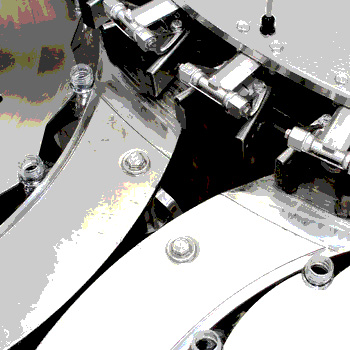Your Equipment Partner Needs an Effective Food Safety Culture Too

A company-wide culture focused on food safety is vital for today’s food processors, and the same company-wide culture should be just as important for your equipment partner.
Most equipment manufacturers understand the importance of clean-ability, access and collection points, but too often there’s a tendency to look for a quick fix. An equipment manufacturer might change a dryer design to minimize horizontal shelves and call it the ‘Super Sanitary Dryer.’ But while the design feature aids the cleaning process, forming sheet metal at 45° to eliminate a horizontal surface is really an engineering maintenance project rather than a redesign. Unfortunately, a quick fix can miss an opportunity to provide a valuable long-term solution for a customer. Furthermore, some traditionally design equipment without really understanding a customer’s cleaning requirements up front. It might not be until after installation, when the customer asks “How do we clean this?” that the requirements are fully realized. An approach focused on how the dryer is cleaned at the onset is far more beneficial and creates a food safety solution with a broader value.
As a result, engineers play a large role in defining equipment deliverables to meet industry and customer needs. However, an engineering department isn’t the only group within an equipment manufacturing company that should be focused on food safety. Just like a food processing company, an equipment manufacturer must have a collaborative, internal culture with a shared focus on food safety in order to successfully deliver cost-effective, hygienically designed equipment.
A Model for an Equipment Provider’s Culture of Food Safety
The culture must involve every level of the organization. Where does it begin? The culture starts with leadership that demonstrates an active commitment to food safety for customers, promoting that commitment throughout the entire organization. The best leaders display food safety values with passion and recognize that employees are ultimately responsible for the company’s successes.
• Market Manager: This person is responsible for understanding market needs and stays close to the ever-changing food safety requirements of customers. This understanding drives all development, innovations and solutions.
• Food Safety Team: A dedicated food safety team brings a focus to sanitation challenges, offering solutions and innovations which meet customer needs. The team also brings leadership to educate and develop food safety culture throughout the business.
• Engineering: When engineers and designers are trained in food safety and hygienic design, both equipment and plant, they can better understand customer needs. Taking the time to clean equipment or watch it being cleaned will provide valuable information. Here, they can see firsthand problem areas, access challenges and identify collection points.
• Field Engineering and Installation Engineers: Trained in food safety, field and installation engineers focus on plant food safety, cleaning and disinfection, safety assurance, personal hygiene and tool disinfection. Installation personnel understand the microbiologic risks they present entering a food plant and they take appropriate steps to avoid being a risk to customers.
• Manufacturing: Understanding hygienic design is just as important for manufacturing as it is for engineering. Here, a sheet metal worker, for example, can identify sanitation challenges within a design and collaborate with engineering for a cost-effective sanitary solution. Many times our manufacturing personnel can bring expertise to achieve. Creating a culture for this collaboration is paramount.
• Welding: Welding experts must champion welding solutions to meet today’s food safety standards. Welding can be one of the most challenging manufacturing processes. Understanding the food safety welding requirements and developing cost effective solutions are value added.
• Purchasing: Purchasing is also part of the food safety culture, bringing value to the solutions. Purchasing personnel interact with vendors, and they are a great resource for bringing new products to research and development as well as engineering groups.
• Shipping: Shipping personnel understand the risks when a piece of equipment is delivered to a customer’s site. The focus on food safety is just as important as they prepare to ship. Has the equipment been cleaned before we tarp and ship? Have we introduced any harmful bacteria or used any harmful chemicals during the manufacturing process? Have we removed all foreign materials such as metal shavings?
Today, with new food safety guidelines and a heightened awareness of the moral responsibility we have to food production, an equipment manufacturer must understand your challenges. Whether you’re a food processor or a manufacturer or an engineer designing sanitary equipment, an internal culture focused on food safety is a must.
Steve Blackowiak is a food safety manager at Bühler Aeroglide. He can be reached at 919.851.2000.
Looking for a reprint of this article?
From high-res PDFs to custom plaques, order your copy today!





